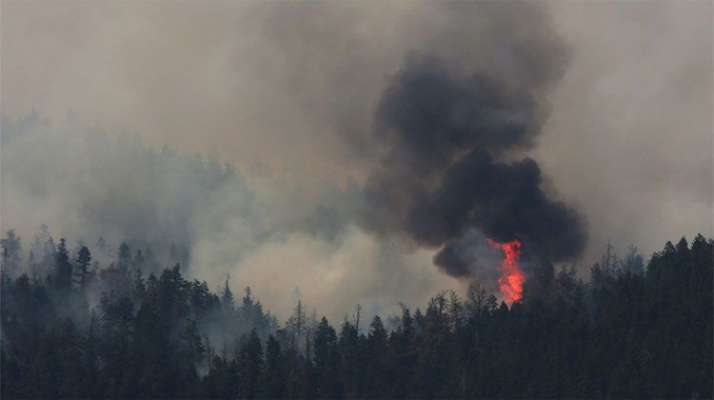At least 74 people were killed, scores injured and many remained unaccounted for after wildfires spread rapidly through a popular vacationing spot on the Greek coast east of Athens, turning it into a disaster area that left the country reeling and in desperate need of firefighting reinforcements from the European Union on Tuesday.
Emergency services said the bodies of 24 adults and children were found just 30 meters from the sea, to where they had tried to escape from the flames that were raging through the fishing village of Mati, which took the brunt of the blaze that swept up coastal parts of the Attica region around Rafina, 15 km northeast of Athens International airport, Efe news agency reported.
Greek firefighters gave the latest death toll as 74, with 187 people injured, including 23 minors, although they warned that those figures were expected to rise as they had identified dozens of burned-out houses they had yet to access due to the extreme temperatures inside the buildings.
So far, 47 bodies have been taken to a forensic centre near Athens for formal identification.
Fanned by strong winds, the fast-moving wildfire incinerated whole swathes of the landscape and destroyed hundreds of properties and vehicles, many of which had to be abandoned as many people made a dash for the sea, using boats to escape the encroaching flames.
Some 700 people were rescued by coast guards, including 19 pulled directly from the water but several people drowned before help reached them.
Spain and Cyprus sent water-dropping planes and Portugal contributed 50 firefighters to bolster the Greek efforts to control the blaze, but the conflagration was still raging out of control late Tuesday.
President Vladimir Putin of Russia said his country was prepared to help but did not elaborate what shape this assistance would take.
The area around Mati, on the east coast, is popular with well-to-do Athens dwellers who built summer holiday homes there because it is surrounded by normally verdant forest and rolling hills within easy access to the Aegean Sea.
Dry and very hot conditions have turned the area into a potential tinderbox, authorities have said.
Greek Prime Minister Alexis Tsipras declared a state of emergency and triggered the EU Civil Protection Mechanism requesting back-up to fight the flames.
European Commissioner for Humanitarian Aid and Crisis Management Christos Stylianides expressed his sorrow for Greece and thanked Cyprus, Spain and Bulgaria for offering planes, firefighters and vehicles.








